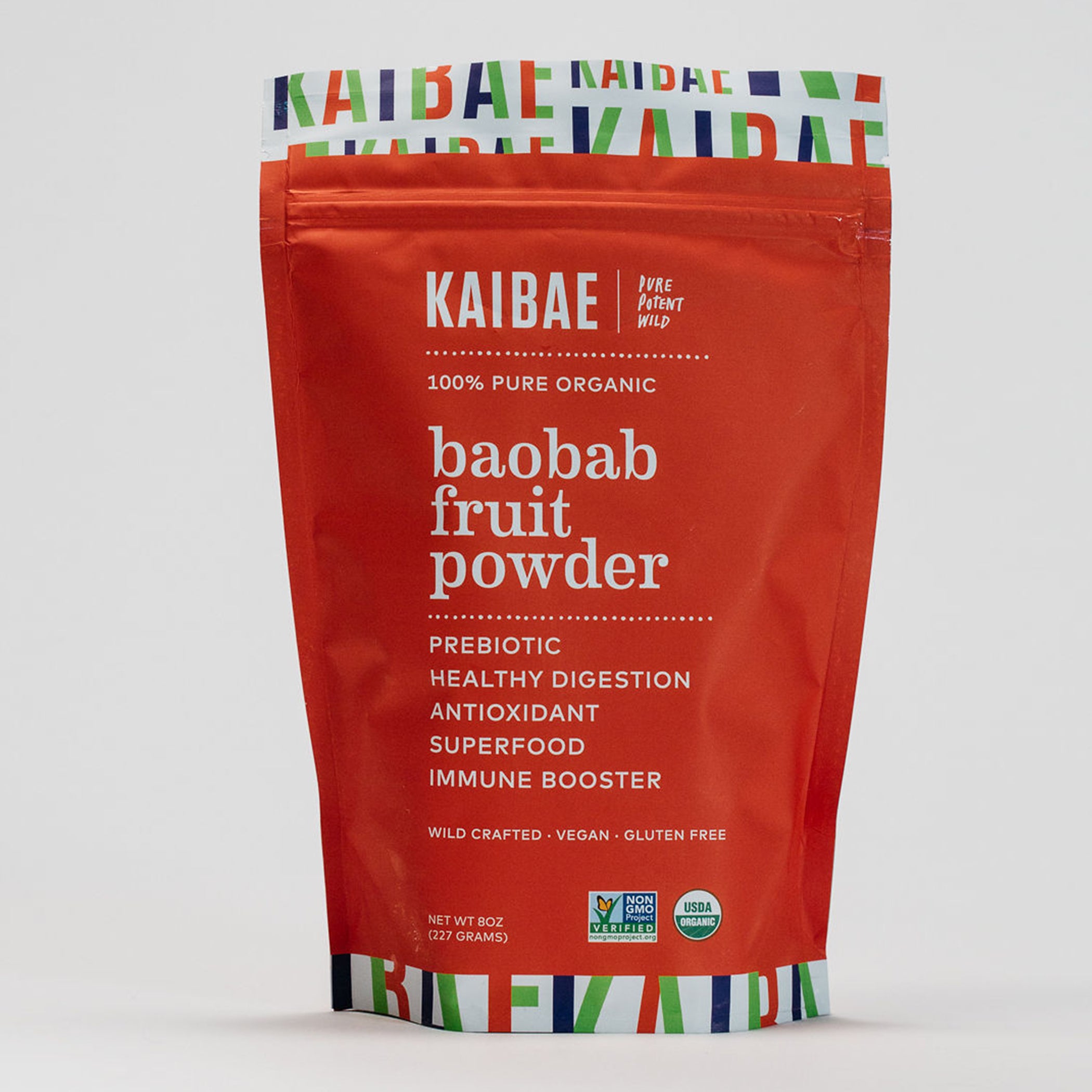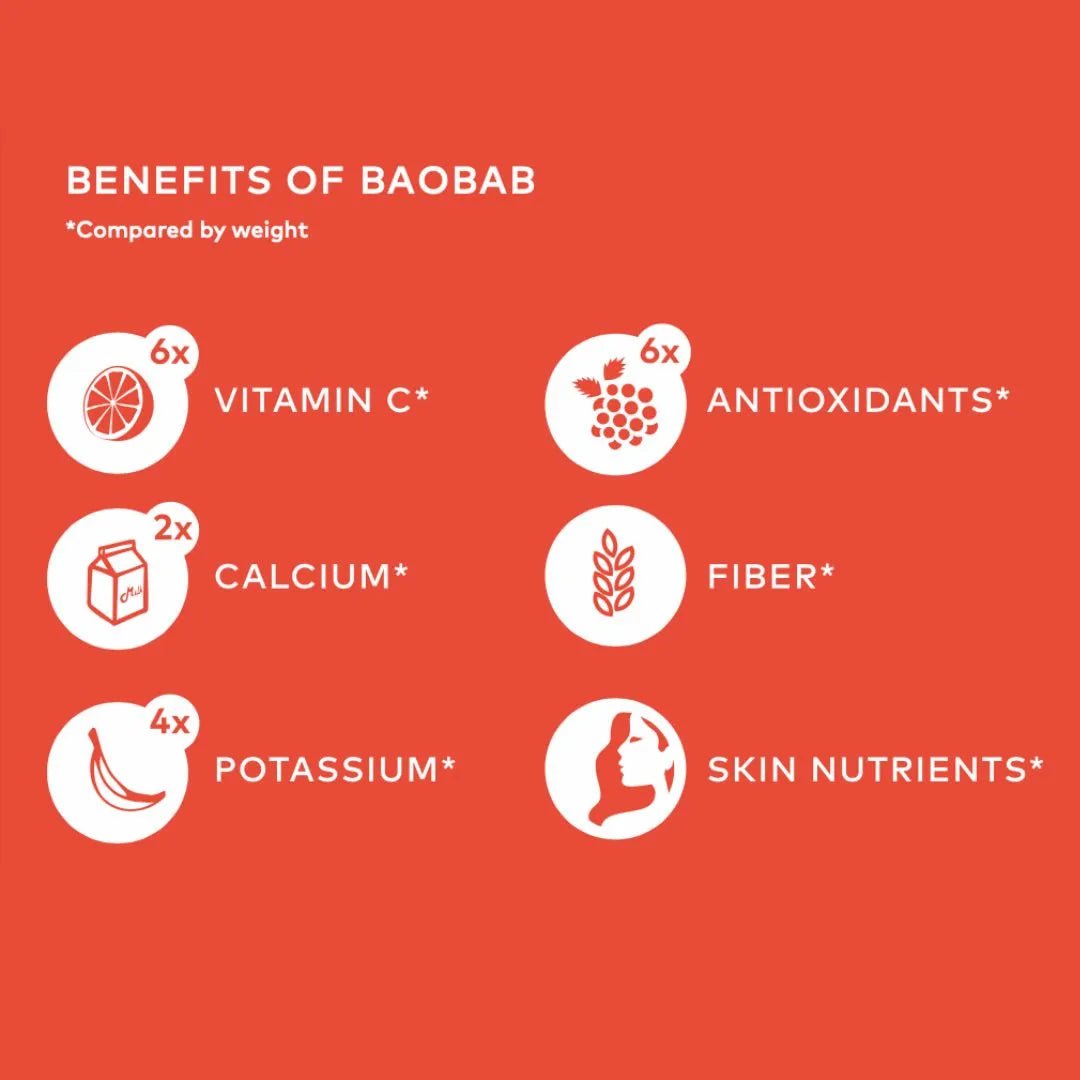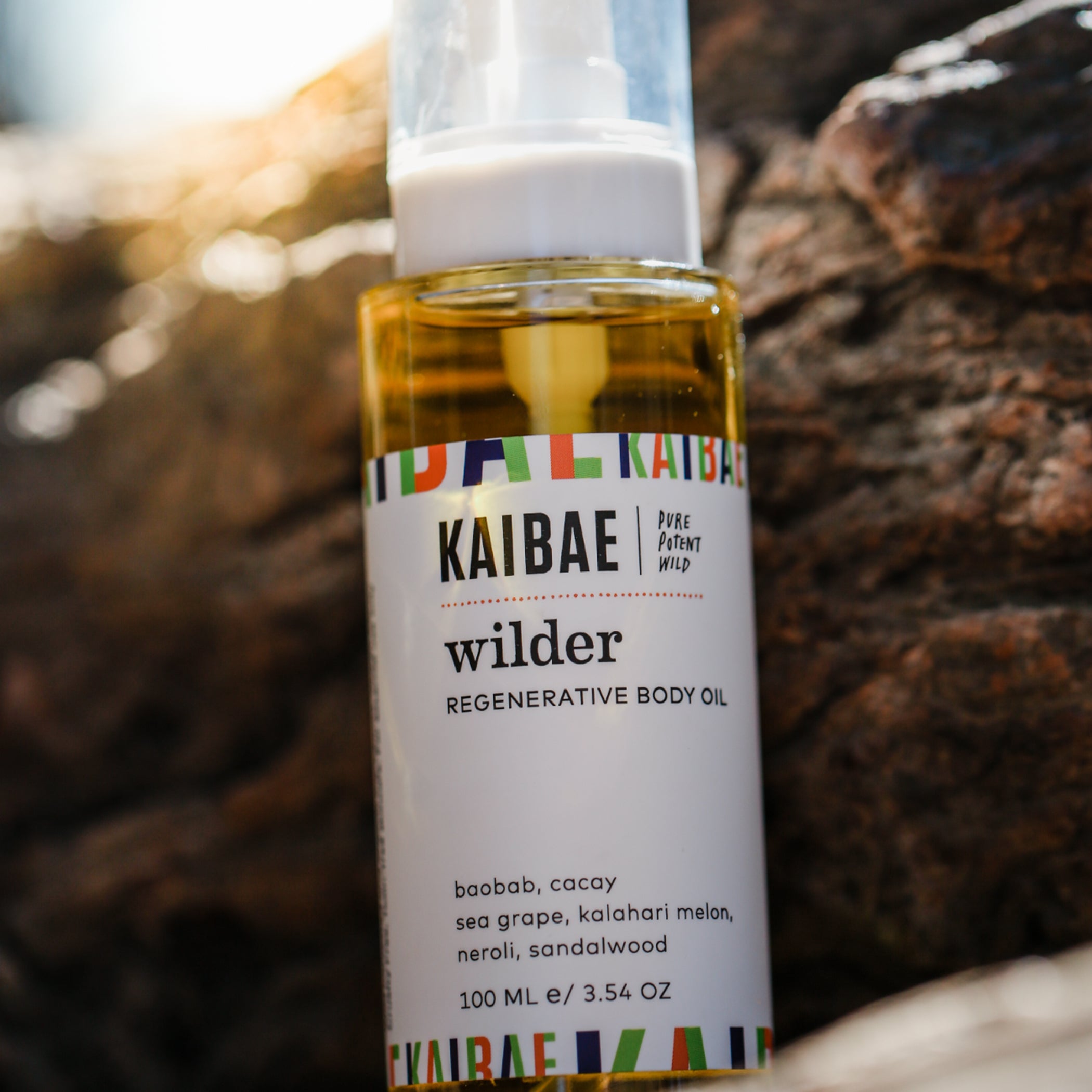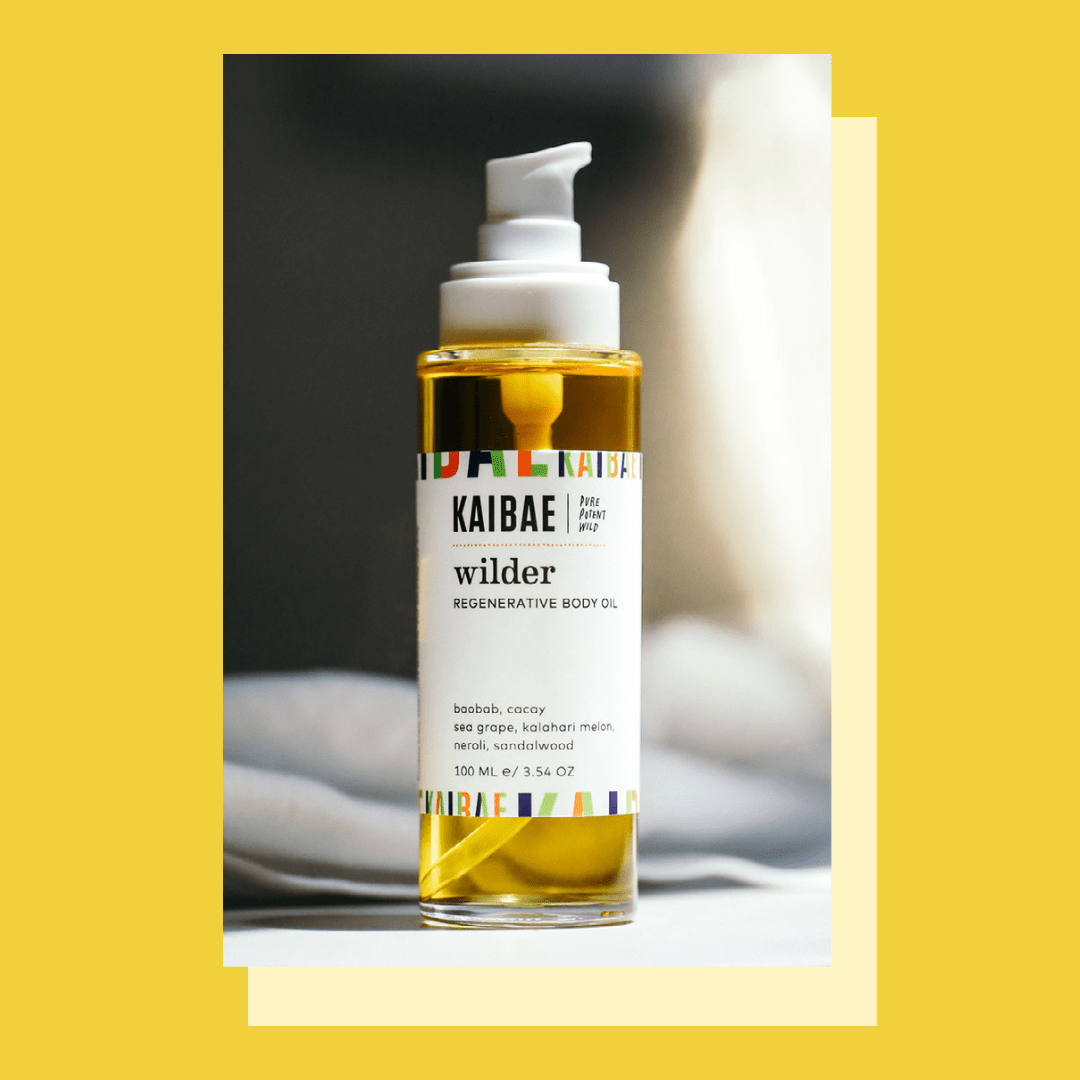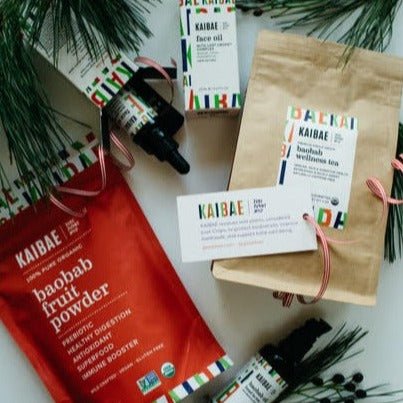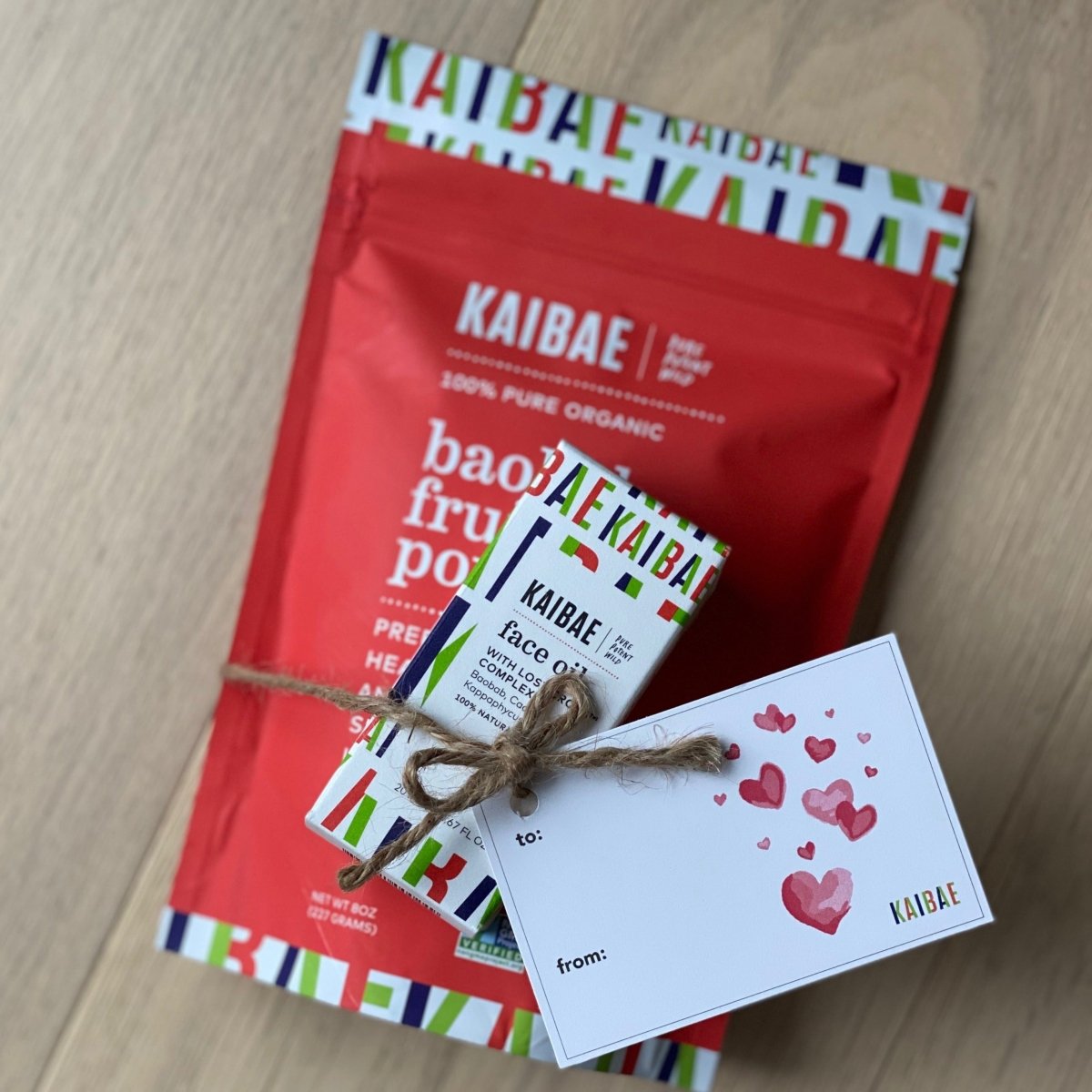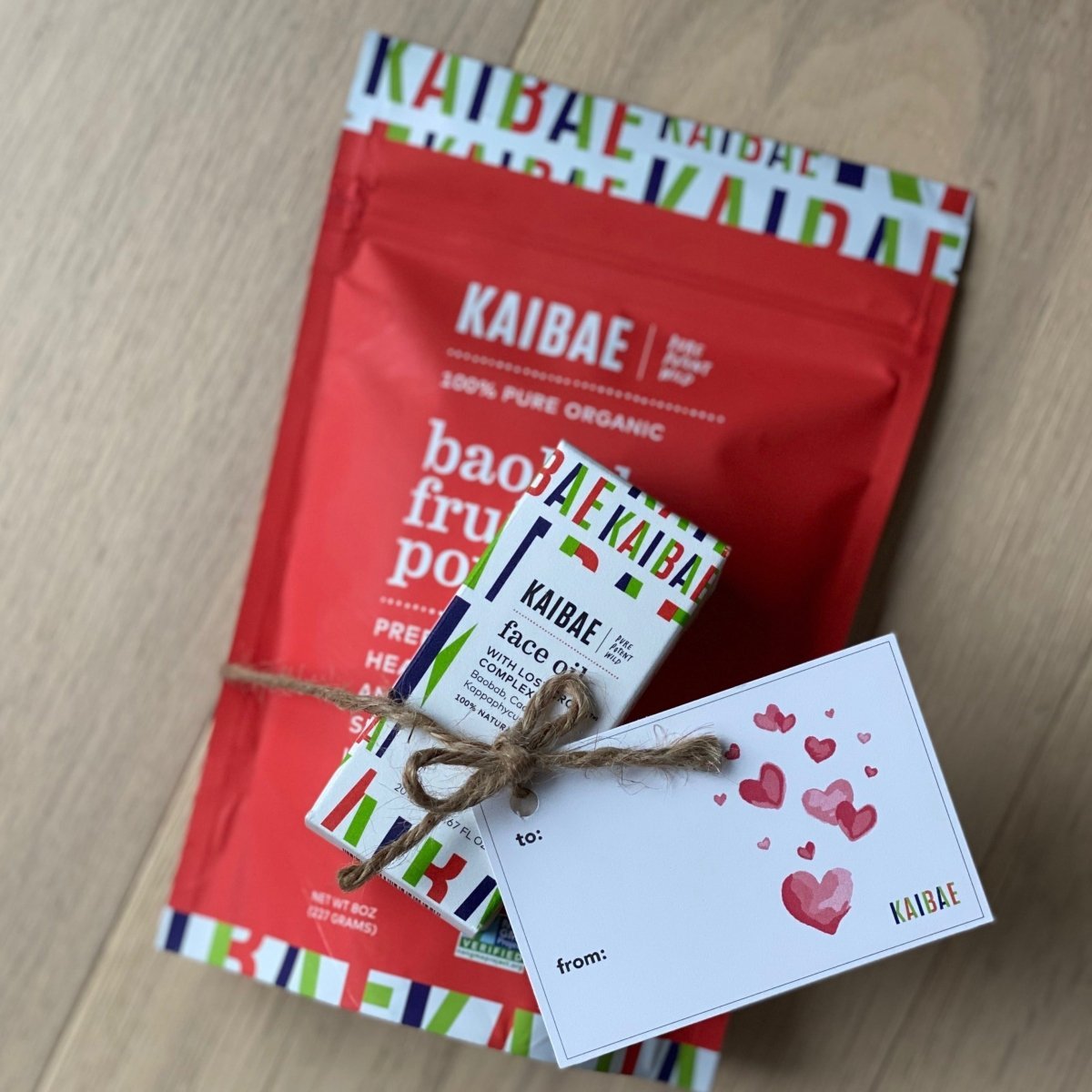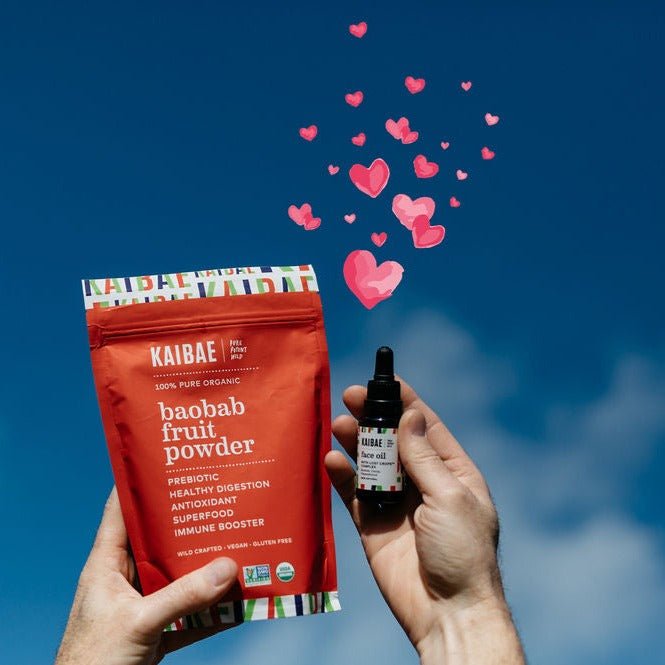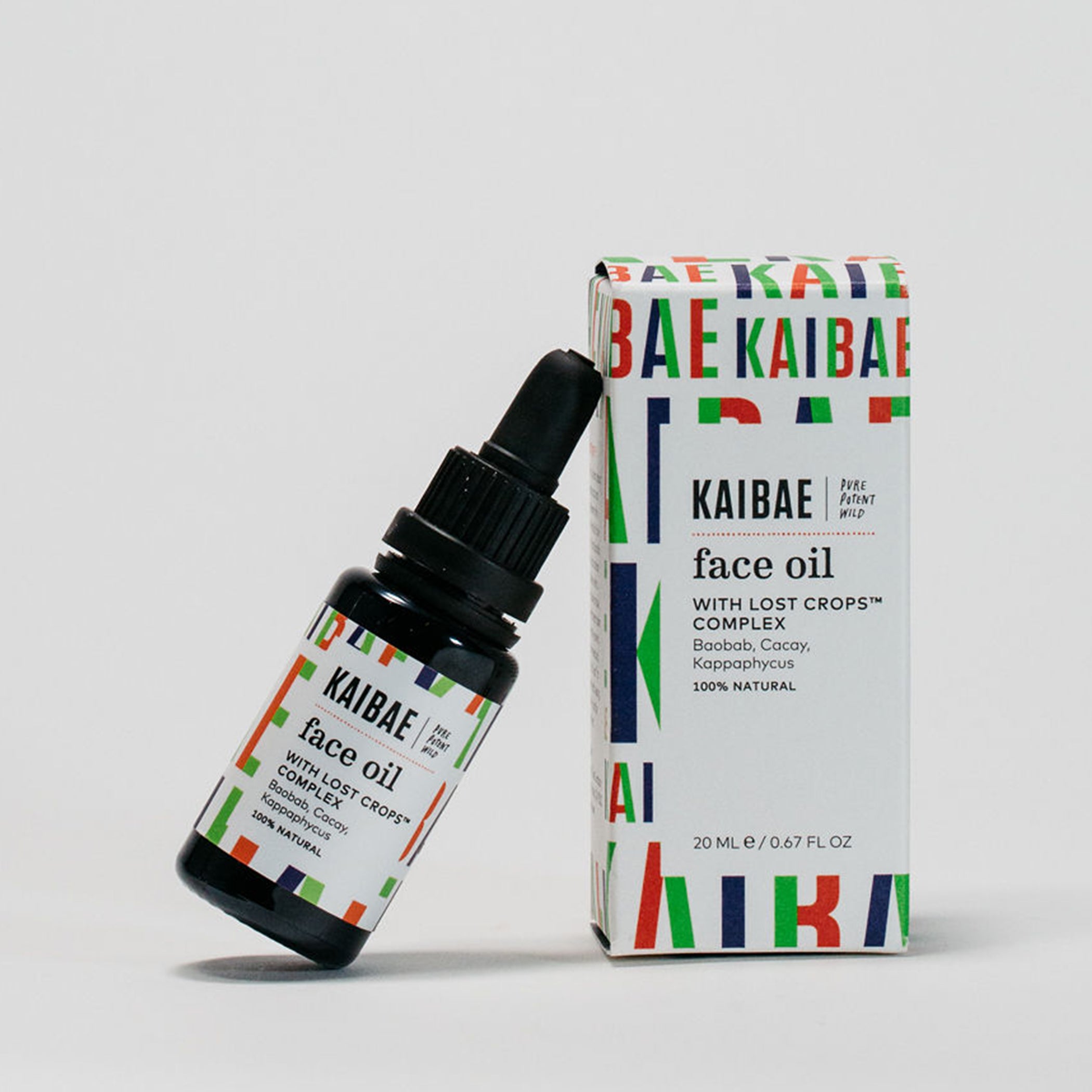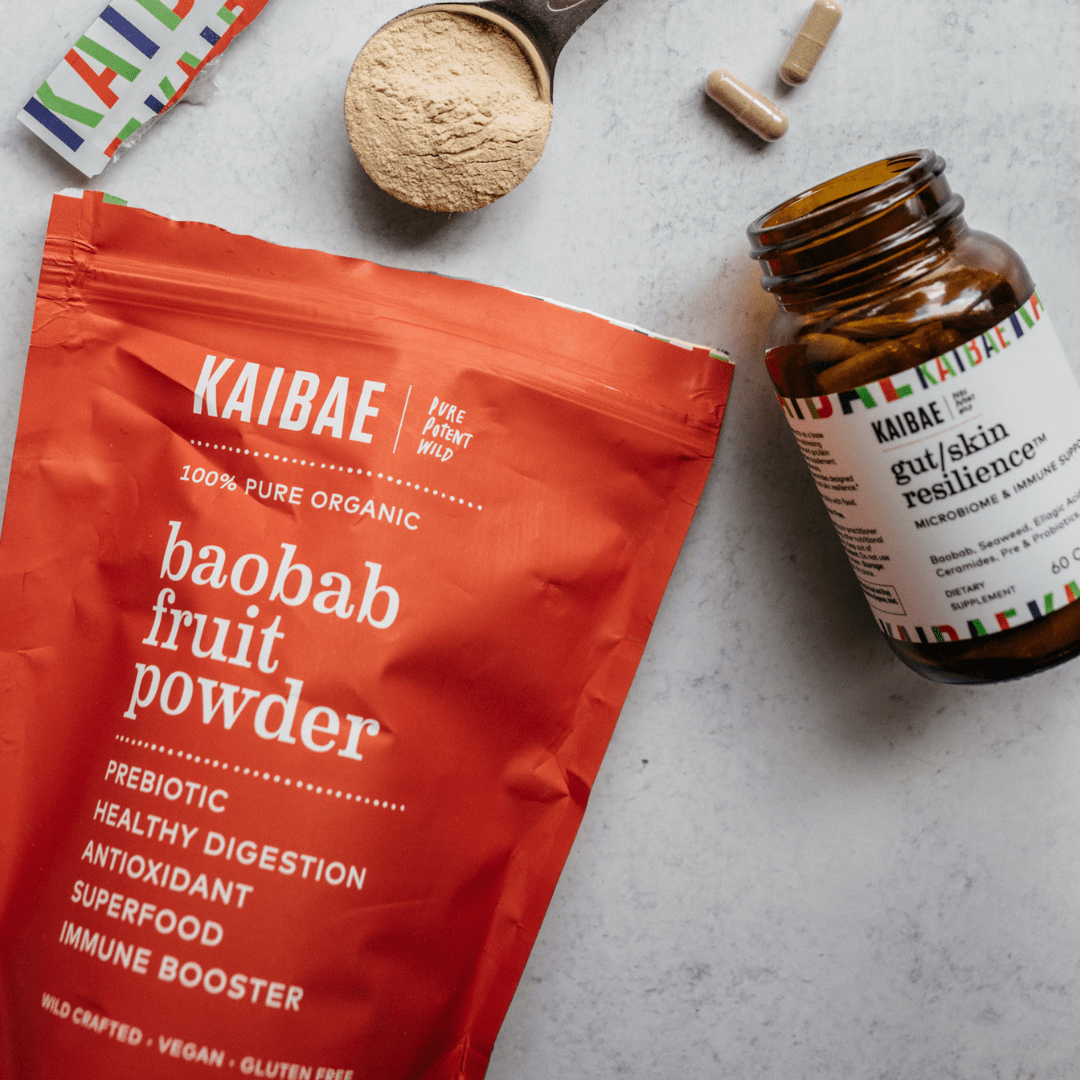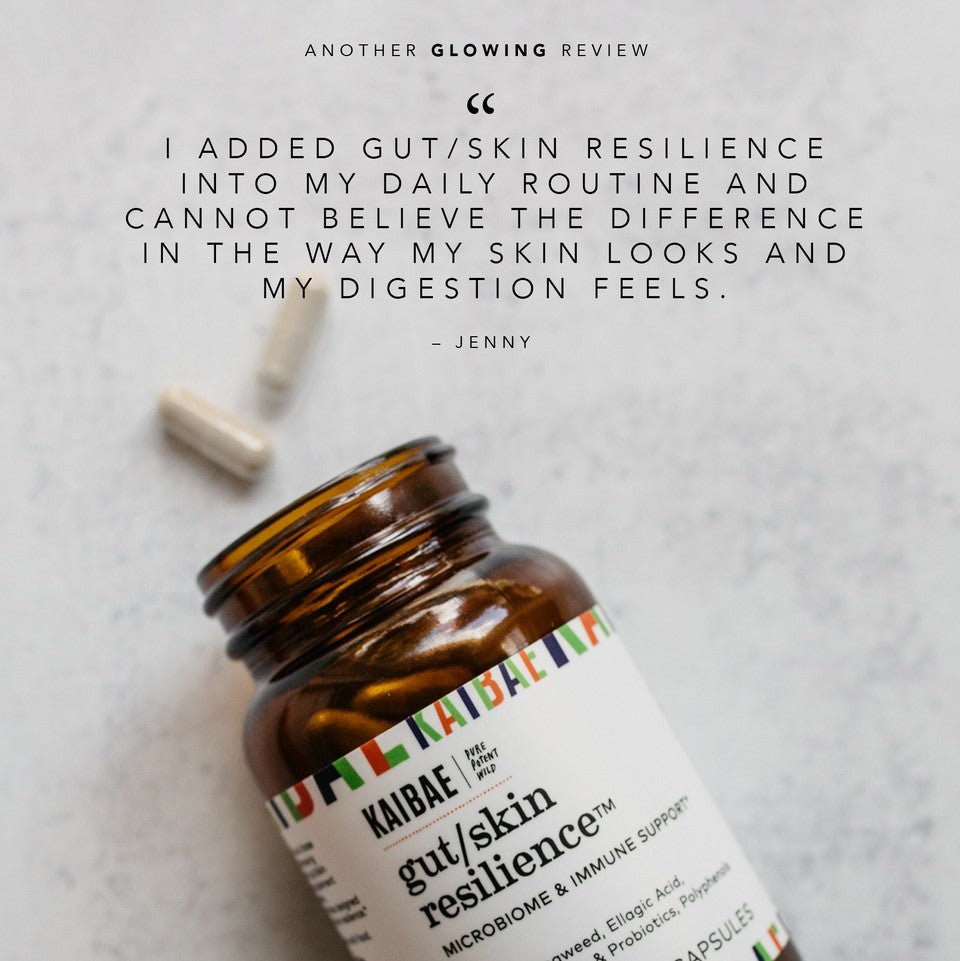Polyphenol Magic: The Top 10 Super Powers of Polyphenols

Have you ever wondered what makes plants look colorful and sustain beauty? We'll let you in on the secret...plants wisely concentrate potent compounds called Polyphenols, which ensure their longevity and make them look vibrant and beautiful. Every plant has a unique polyphenol signature shaped by its environment to defend against ultraviolet radiation and infection. Studies show that polyphenols can dramatically benefit our health, beauty, and longevity.
Different polyphenols can be found in fruits, seeds, and vegetables, such as berries, grapes, green tea, baobab fruit powder, coffee, and citrus. It is estimated that there are more than 8,000 types of polyphenols.[1]
Wild plants are exceptionally rich in polyphenols. Baobab trees are the ultimate example; they are majestic trees that have grown in the African Savanna for thousands of years, wisely concentrating polyphenols throughout their roots, bark, leaves, and fruit, thriving in one of the most challenging environments on earth. These magical qualities make Baobab a prime source of polyphenols to support our wellness and skin health.
Polyphenols provide excellent health benefits.
Polyphenols benefit our health in many seemingly unrelated ways. Studies on Ellagic Acid, a polyphenol derived from pomegranate and a key ingredient in KAIBAE gut/skin resilience, which helps in the prevention of skin pigmentation, can also play a role in preserving muscle mass and blood vessel flexibility.
1. Polyphenols benefit immune health
Pelargonium sidoides is a plant that grows wild in South African grasslands—traditionally used to resolve respiratory infections and is now verified by science to include unique flavonoids responsible for their anti-inflammatory, antibacterial, and antiviral properties. Discover the benefit of Pelargonium in KAIBAE gut/lung resilience that combines polyphenols, prebiotics, and probiotics for a strong immune boost.
2. Polyphenols play a crucial role in gut health
A diet rich in fruits and vegetables boosts the growth of beneficial probiotics in the gut. Prebiotic fiber, probiotics, and polyphenols are needed for a healthy gut microbiome to produce metabolites that can help prevent chronic diseases such as cancer, cardiovascular disease, diabetes, and neurodegenerative diseases.
"Prebiotics, probiotics, and polyphenols should be at the core of every health and skincare regimen." Dr. Luc Maes ND, Founder KAIBAE
3. Polyphenols reduce the effect of sugar on cells
Excessive sugar and simple carbohydrate in our diet promote acne and accelerate skin aging. High blood sugar weakens collagen and elastin proteins through glycation. Polyphenols in Baobab powder support healthy blood sugar when added to foods and drinks and help to avoid the damaging effects of advanced glycation end products (AGEs) throughout our body and the skin.[2,3]
4. Polyphenols prevent skin pigmentation
Pomegranates, walnuts, berries, green tea, and baobab are rich in catechins. These are polyphenols that, among their many benefits, help prevent skin pigmentation [5,6].
5. Polyphenols rejuvenate the skin
Quercetin, Rutin, and Hesperidin are some of the many bioflavonoids found in citrus. Bioflavonoids support gut and skin barrier health. [7] and have excellent anti-aging potential, reducing age spots and the appearance of wrinkles. Quercetin provides great senolytic benefits, meaning that it can eliminate aging and rejuvenate cells throughout the whole body. Rutin decreases capillary permeability and improves microcirculation in all skin cells. Hesperidin reduces tyrosinase's activity, an enzyme responsible for skin pigment melanin production.[6,7]
6. Polyphenols prevent DNA damage.
One of the many benefits of resveratrol, a polyphenol found in grapes, is improving lifespan. Resveratrol activates sirtuins, proteins that repair DNA and slow the aging process.[8] Blueberries contain pterostilbene, which may have SPF-like benefits for the skin when used topically.[9]
7. Polyphenols calm the mind and support clarity
According to Dr. Walter Willett, professor of epidemiology and nutrition at the Harvard T.H. Chan School of Public Health, damage to the blood supply to the brain is a serious contributor to cognitive decline, adding that the anti-inflammatory properties of flavonoids may help protect that blood supply and slow down cognitive decline.
Cacao has a calming effect on our nervous system and reduces the damaging effects of the stress hormone cortisol on our overall health and the skin. [9] Observing the wide-reaching effects of polyphenols and their synergistic effect on the gut, brain, and skin, it is clear that a whole-person approach to health is required for optimal wellness and beautiful skin.[10]
8. Polyphenols reduce skin inflammation
Turmeric is a known herb for inflammation, widely known to alleviate joint pain and muscle soreness. Turmeric also improves skin health, as a dietary supplement or used topically; it can help reduce redness and irritation associated with eczema and psoriasis.[10]
9. Polyphenols balance hormones for skin health
Lignans are found in foods such as flax seeds, sesame seeds, legumes, fruits, and vegetables which gut microbiota convert into metabolites with estrogen-like effects. These phytoestrogens get the skin glowing, help increase the production of hyaluronic acid and protect collagen and elastin from oxidative stress.[11] Lignan-rich foods may support the skin during menopause.[12]
10. Polyphenols improve circulation in your skin
Your favorite coffee gives you an energy boost in the morning, and studies show that polyphenols in coffee do the same when applied to the skin. Coffee extract and coffee oil from green coffee beans improve microcirculation, encouraging healthy collagen production.
In conclusion
Plants concentrate polyphenols as a defense mechanism against UV radiation and pathogens in their environment and we can take advantage of these incredible qualities in our diet and in our skincare. Wild plants are especially rich in polyphenols and plants such as the Baobab also known as the Pharmacy Tree have mastered concentrating polyphenols for centuries in their fruit, leaves, and roots.
Baobab Fruit Powder is one of the most polyphenol-rich fruits known to humans with prebiotic fiber for gut health and healthy inflammatory response. Baobab tastes mildly sweet and tangy and can be enjoyed daily in food and beverages. KAIBAE Baobab is organic, gluten-free, keto-friendly, and a low FODMAP food.
Baobab is considered a superfood for many reasons, one being its high prebiotic fiber and polyphenols content. By regularly incorporating baobab and other polyphenol-rich foods into your diet, you are conditioning your gut, skin, and metabolism for optimal function and wellness.
References
[1] Plamada D, Vodnar DC. Polyphenols-Gut Microbiota Interrelationship: A Transition to a New Generation of Prebiotics. Nutrients. 2021 Dec 28;14(1):137.
[2] Coe SA, Clegg M, Armengol M, Ryan L. The polyphenol-rich baobab fruit (Adansonia digitata L.) reduces starch digestion and glycemic response in humans. Nutr Res. 2013 Nov;33(11):888-96.
[3]Danby FW. Nutrition and aging skin: sugar and glycation. Clin Dermatol. 2010 Jul-Aug;28(4):409-11.
[4[Gorgisen G, Ozkol H, Tuluce Y, Arslan A, Ecer Y, Keskin S, Kaya Z, Ragbetli MC. Silibinin and ellagic acid increase the expression of insulin receptor substrate one protein in ultraviolet-irradiated rat skin. Biotech Histochem. 2020 Nov;95(8):641-646.
[5] Ryu D, Mouchiroud L, Andreux PA, Katsyuba E, Mullan N, Nicolet-Dit-Félix AA, Williams EG, Jha P, Lo Sasso G, Huzard D, Aebischer P, Sandi C, Rinsch C, Auwerx J. Urolithin A induces mitophagy and prolongs lifespan in C. elegans and increases muscle function in rodents. Nat Med. 2016 Aug;22(8):879-88.
[6]D'Amico D, Andreux PA, Valdés P, Singh A, Rinsch C, Auwerx J. Impact of the Natural Compound Urolithin A on Health, Disease, and Aging. Trends Mol Med. 2021 Jul;27(7):687-699.
[7]Wang M, Zhao H, Wen X, Ho CT, Li S. Citrus flavonoids and the intestinal barrier: Interactions and effects. Compr Rev Food Sci Food Saf. 2021 Jan;20(1):225-251
[8]Pyo IS, Yun S, Yoon YE, Choi JW, Lee SJ. Mechanisms of Aging and the Preventive Effects of Resveratrol on Age-Related Diseases. Molecules. 2020 Oct 12;25(20):4649.
[9]McCormack D, McFadden D. A review of pterostilbene antioxidant activity and disease modification. Oxid Med Cell Longev. 2013;2013:575482.
[10]Vaughn AR, Branum A, Sivamani RK. Effects of Turmeric (Curcuma longa) on Skin Health: A Systematic Review of the Clinical Evidence. Phytother Res. 2016 Aug;30(8):1243-64.
[11]Desmawati D, Sulastri D. Phytoestrogens and Their Health Effect. Open Access Maced J Med Sci. 2019 Feb 14;7(3):495-499.
[12] Hairi HA, Shuid AN, Ibrahim N', Jamal JA, Mohamed N, Mohamed IN. The Effects and Action Mechanisms of Phytoestrogens on Vasomotor Symptoms During Menopausal Transition: Thermoregulatory Mechanism. Curr Drug Targets. 2019;20(2):192-200.
[13}Tseng YP, Liu C, Chan LP, Liang CH. Coffee pulp supplement affects antioxidant status and favors skin anti-aging in healthy subjects. J Cosmet Dermatol. 2021 Jul 15.









